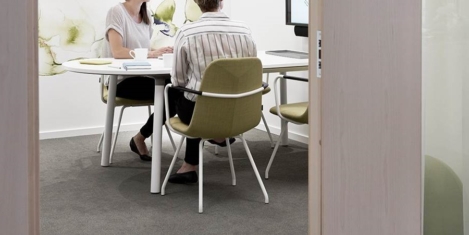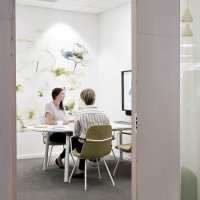To provide the best experiences, we use technologies like cookies to store and/or access device information. Consenting to these technologies will allow us to process data such as browsing behaviour or unique IDs on this site. Not consenting or withdrawing consent, may adversely affect certain features and functions.
The technical storage or access is strictly necessary for the legitimate purpose of enabling the use of a specific service explicitly requested by the subscriber or user, or for the sole purpose of carrying out the transmission of a communication over an electronic communications network.
The technical storage or access is necessary for the legitimate purpose of storing preferences that are not requested by the subscriber or user.
The technical storage or access that is used exclusively for statistical purposes.
The technical storage or access that is used exclusively for anonymous statistical purposes. Without a subpoena, voluntary compliance on the part of your Internet Service Provider, or additional records from a third party, information stored or retrieved for this purpose alone cannot usually be used to identify you.
The technical storage or access is required to create user profiles to send advertising, or to track the user on a website or across several websites for similar marketing purposes.
 Flexible working has overtaken salary as the top benefit to employees (59 percent), highlighting that flexibility and autonomy over the working day is now more important than financial reward for most workers. This is according to a new report from Jabra; the Jabra Hybrid Ways of Working 2021 Global Report carried out amongst 5,000 knowledge workers in five countries worldwide, including the UK. However, the report also suggests that many business leaders have a false sense of confidence in their ability to implement hybrid working.
Flexible working has overtaken salary as the top benefit to employees (59 percent), highlighting that flexibility and autonomy over the working day is now more important than financial reward for most workers. This is according to a new report from Jabra; the Jabra Hybrid Ways of Working 2021 Global Report carried out amongst 5,000 knowledge workers in five countries worldwide, including the UK. However, the report also suggests that many business leaders have a false sense of confidence in their ability to implement hybrid working.





















 Putting in overtime often comes at a cost of stress, burnout and depression. But extra work doesn’t always negatively affect wellbeing. In fact, according to recent research from academics
Putting in overtime often comes at a cost of stress, burnout and depression. But extra work doesn’t always negatively affect wellbeing. In fact, according to recent research from academics 
 Leaders need to work harder to build trust among employees with 32 per of U.K. workers admitting to not trusting senior leaders. These are the findings from
Leaders need to work harder to build trust among employees with 32 per of U.K. workers admitting to not trusting senior leaders. These are the findings from 









January 31, 2022
The great workplace conversation (still) needs to be held with a great deal more humility
by Mark Eltringham • Comment, Flexible working, Technology, Workplace design